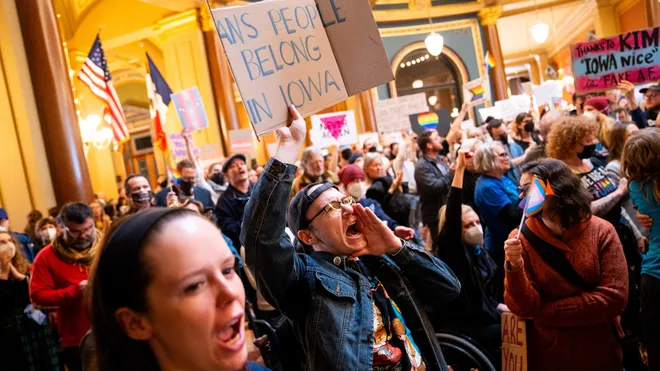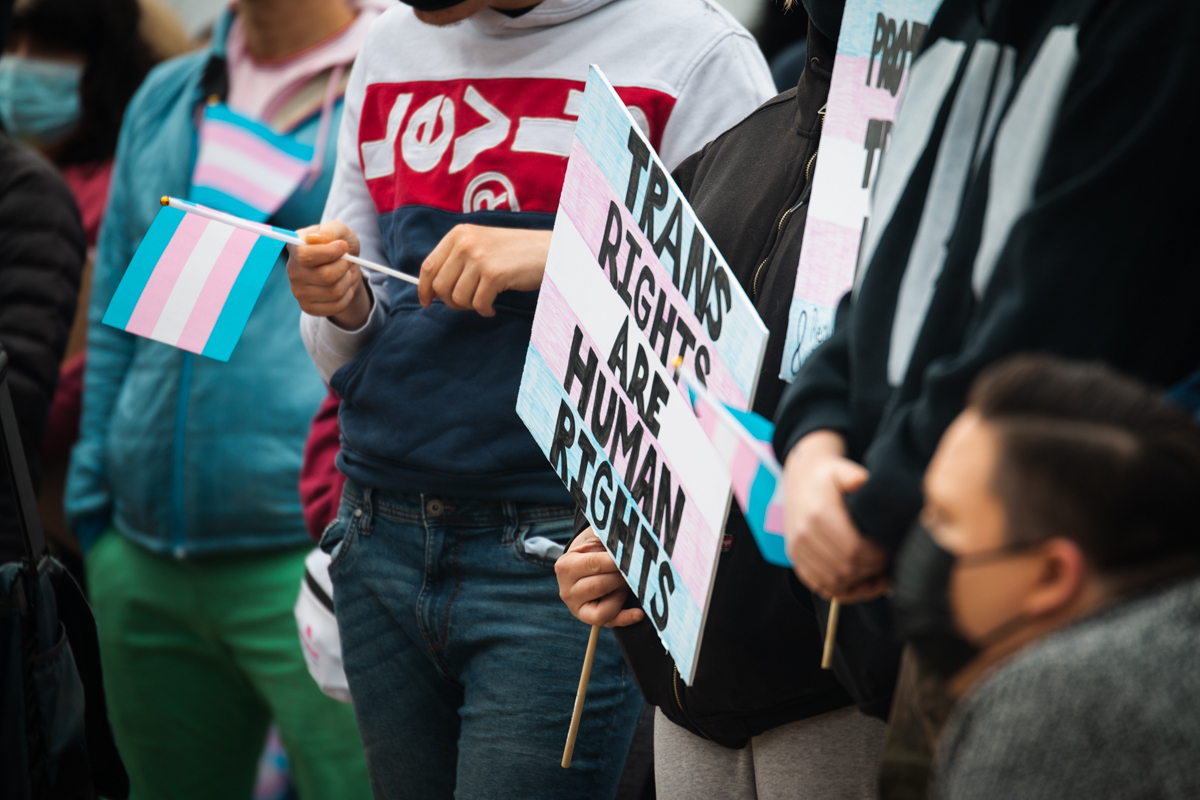A new bill introduced in the Iowa House has sparked controversy by proposing the removal of transgender protections from the state’s Civil Rights Act. If passed, the legislation would significantly impact the rights and legal protections of transgender individuals in Iowa, rolling back measures that have been in place for years.
This move has ignited fierce debate, with supporters arguing that it aligns with conservative values and biological definitions of gender, while opponents warn that it promotes discrimination and could have severe consequences for the transgender community.
What the Bill Proposes
The proposed legislation seeks to amend the Iowa Civil Rights Act of 1965, which currently prohibits discrimination based on race, sex, sexual orientation, gender identity, and other factors in areas such as employment, housing, education, and public accommodations. The new bill aims to:
- Remove “Gender Identity” as a Protected Class – This would mean that transgender individuals would no longer have legal recourse in cases of discrimination based on their gender identity.
- Allow Businesses to Deny Services – Employers, landlords, and service providers could refuse to accommodate transgender individuals without facing legal consequences.
- Limit Public Accommodations – Transgender individuals could be restricted from using restrooms and other facilities that align with their gender identity.
Supporters of the bill claim that it restores fairness by removing what they see as “special protections” for transgender individuals. However, opponents argue that this move would effectively legalize discrimination against an already vulnerable group.
Opposition and Backlash
The bill has faced strong opposition from civil rights organizations, LGBTQ+ advocacy groups, and many citizens who believe that it undermines basic human rights. Critics argue that stripping protections from the Civil Rights Act sends a dangerous message that transgender individuals are not entitled to the same legal protections as others.
Legal and Social Consequences
If enacted, the bill could have serious legal and social ramifications, including:
- Workplace Discrimination – Transgender employees could be fired or denied promotions solely based on their gender identity.
- Housing Instability – Landlords could refuse to rent to transgender tenants without any legal repercussions.
- Healthcare Barriers – Transgender patients might face discrimination from medical providers, limiting their access to necessary healthcare.
- Increased Mental Health Risks – Studies show that anti-transgender legislation correlates with higher rates of depression, anxiety, and suicide among transgender individuals.
National Comparisons
Iowa would not be the first state to attempt such legislation. In recent years, several conservative-leaning states have passed or attempted to pass similar laws, often leading to legal battles and national outcry. Courts have struck down many of these laws as unconstitutional, citing violations of the Equal Protection Clause of the Fourteenth Amendment.
Public and Political Reactions
Democratic lawmakers and progressive advocacy groups have condemned the bill, vowing to fight against its passage. Some moderate Republicans have also expressed concerns, fearing that it could damage Iowa’s reputation and deter businesses from investing in the state.
Activists have organized protests and rallies across Iowa, urging citizens to contact their representatives and speak out against the proposed changes. Several businesses and universities have also voiced opposition, emphasizing the importance of inclusivity in the workplace and educational institutions.
What’s Next?

The bill is currently under review in committee hearings, where it will be debated before potentially moving forward in the legislative process. If passed, it is likely to face legal challenges, as similar laws have been overturned in other states.
For now, the transgender community in Iowa and their allies are fighting to protect their rights, hoping to prevent what they see as a significant rollback of civil liberties. The outcome of this bill will not only affect Iowa but could also influence similar legislation in other states, shaping the national conversation on LGBTQ+ rights in America.








